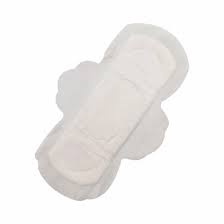
In today’s world, where hygiene products are marketed as essential for women’s health, a shocking reality remains hidden—many sanitary napkins contain harmful chemicals that can lead to serious health issues. Women across the globe rely on these products for menstrual hygiene, but few are aware of the risks they pose to reproductive health. This article sheds light on the dangers of commercial sanitary napkins and explores safer alternatives that can protect women from long-term health complications.
The Hidden Chemicals in Sanitary Napkins
Sanitary napkins, widely used by women during menstruation, often contain toxic substances such as phenol and propylene. These chemicals are present in almost all major brands, and some brands even use additional harmful compounds. Despite their convenience, these napkins expose women to hazardous substances that, over time, can contribute to various reproductive health issues.
The issue is particularly concerning for young girls experiencing menarche (the first occurrence of menstruation). At this crucial stage, educating them about bodily changes and safe menstrual hygiene practices is essential. However, instead of awareness, many are unknowingly exposed to chemicals that can harm their fertility and overall reproductive health.
Health Risks Linked to Sanitary Napkins
1. Infertility and Hormonal Imbalance
Prolonged exposure to harmful chemicals in sanitary napkins can contribute to infertility. These toxic substances can disrupt hormonal balance and negatively impact the reproductive system, leading to difficulties in conception.
2. PCOD, Ovarian Cysts, and Fibroids
Failure to change sanitary napkins every three hours can lead to chemical reactions in menstrual blood. When chemicals like propylene and phenol mix with blood and coagulate, the resulting vapors can harm the cervix, uterus, and ovaries. This exposure can cause Polycystic Ovarian Disease (PCOD), ovarian cysts, and fibroids—conditions that have become increasingly common in recent years.
3. Increased Risk of Cervical and Vaginal Cancer
The accumulation of chemical-laden blood can lead to cellular changes in the cervix, increasing the risk of cervical and vaginal cancer. Unlike previous generations, where such issues were rare, today’s women face a growing number of reproductive health disorders despite advancements in medical science.
4. The Rise of Fertility Clinics
The alarming increase in infertility rates has led to a boom in fertility centers, particularly in regions like Tamil Nadu. Decades ago, government policies aimed to control population growth by promoting smaller families. However, the modern generation faces a different challenge—infertility caused by exposure to harmful sanitary napkin chemicals.
The Need for Change: Switching to Bio-Napkins
Given the health risks posed by commercial sanitary napkins, it is essential to consider safer alternatives. One such option is bio-napkins, made from natural, chemical-free materials. These can be easily prepared at home using:
- Canvas cloth
- Surgical cotton
- A simple adhesive sticker
Benefits of Bio-Napkins
- Affordable and Cost-Effective: The cost of making bio-napkins is significantly lower than purchasing commercial sanitary napkins.
- Free from Harmful Chemicals: Bio-napkins eliminate exposure to phenol, propylene, and other toxic substances.
- Better for Reproductive Health: They help maintain genital hygiene and prevent issues like PCOD, ovarian cysts, and fibroids.
- Environmentally Friendly: Unlike disposable sanitary pads, bio-napkins are reusable and reduce plastic waste.
Spreading Awareness for a Healthier Future
Educating women and young girls about the dangers of commercial sanitary napkins is crucial. Schools, colleges, and workplaces should encourage discussions on menstrual hygiene and promote the use of bio-napkins. Gifting bio-napkins during puberty ceremonies or awareness programs can be an excellent way to introduce this healthier alternative to more people.
The widespread use of chemical-laden sanitary napkins has led to serious health concerns, including infertility, PCOD, ovarian cysts, and even cancer. Women need to be aware of the dangers hidden behind corporate marketing tactics and make informed choices regarding their menstrual hygiene. By switching to bio-napkins made from natural materials, women can protect their reproductive health while also making an environmentally conscious choice.
Let’s take a step toward a healthier, disease-free future by spreading awareness about the importance of safe menstrual hygiene practices. The change starts with you!
For more information contact Karadi Organics – 100% organics online store





